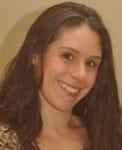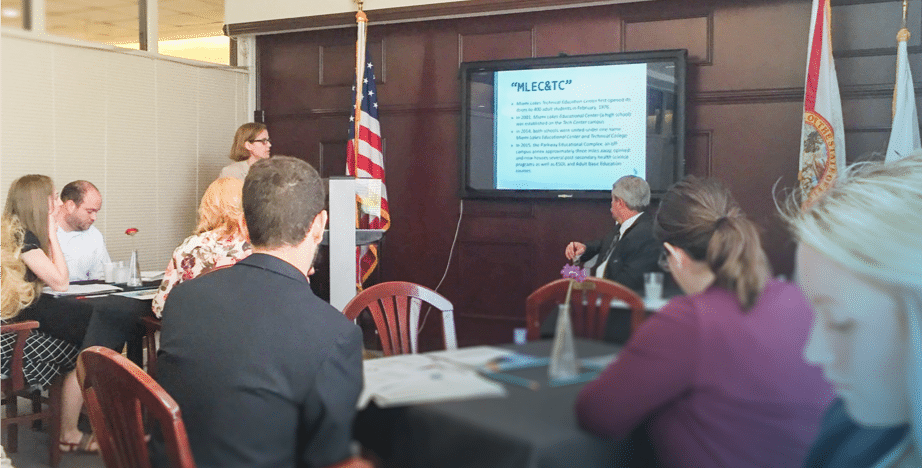Overview
As we strive to create an education system that is responsive to the needs of all, we must foster pathways that afford students the opportunity to move through secondary and postsecondary education at an individualized pace that meets their academic needs. Accelerated learning serves as a promising tool to provide such opportunities to students. This webinar discussed the recent brief Understanding Accelerated Learning Across Secondary and Postsecondary Education, and featured both a description of the categories of accelerated learning developed in the brief and presentations from programs profiled.
Speakers included Jennifer Brown Lerner, Senior Director, American Youth Policy Forum; Melinda Mechur Karp, Senior Research Associate, Community College Research Center, Teachers College, Columbia University; Louisa Erickson, Program Administrator, Basic Skills, Washington State Board for Technical and Community College; and Thomas Acampora, Field Manager, Center for Social Organization of Schools at Johns Hopkins University.
Presenters Included:
Thomas Acampora, Field Manager, Center for Social Organization of Schools
Louisa Erickson, Program Administrator, Washington State Board for Community and Technical Colleges
Joe Harris, Director, College and Career Readiness and Success Center, American Institutes for Research
Melinda Mechur Karp, Senior Research Associate, Community College Research Center, Teachers College, Columbia University
Presenter biographies
 Thomas Acampora, as a Field Manager for Talent Development Secondary, leads school transformation teams in multiple schools to improve student outcomes and ensure student success. Prior to joining Talent Development Secondary, Thomas was an award winning Social Studies teacher at in Baltimore City. In 2011, he was named an Emerging Leader in Education by the Phi Delta Kappa International Association for Professional Educators. In addition, he is currently a doctoral candidate at Johns Hopkins University’s School Of Education and serves as the President of the university’s chapter of Phi Delta Kappa.
Thomas Acampora, as a Field Manager for Talent Development Secondary, leads school transformation teams in multiple schools to improve student outcomes and ensure student success. Prior to joining Talent Development Secondary, Thomas was an award winning Social Studies teacher at in Baltimore City. In 2011, he was named an Emerging Leader in Education by the Phi Delta Kappa International Association for Professional Educators. In addition, he is currently a doctoral candidate at Johns Hopkins University’s School Of Education and serves as the President of the university’s chapter of Phi Delta Kappa.
Louisa Erickson is Program Administrator for Adult Education at the Washington State Board for Community and Technical Colleges (SBCTC), where she serves as the agency lead for I-BEST (Integrated Basic Education and Skills Training) programs in Washington state, and provides technical assistance to multiple states throughout the nation requesting assistance and information regarding I-BEST implementation. She also serves on the national leadership team and provides technical assistance for the Accelerating Opportunity initiative. Before joining SBCTC, Louisa worked for the WA State Department of Commerce with her primary focus being management of two statewide policy commissions created by the WA State Legislature focusing on Offender Reentry and Children and Families of Incarcerated Parents. Louisa has over 17 years of experience successfully designing, implementing, and managing programs designed to remove barriers to success for at-risk youth and adult populations. Her areas of professional experience and expertise include organizational and community assessment, policy analysis and development, community collaboration and partnership building, prevention based programming, offender reentry, education, employment and training programs.
 Joseph R. Harris, PhD, Managing Research Analyst at the American Institutes for Research, has an extensive background in secondary school improvement, college and career readiness, and science, technology, engineering and mathematics (STEM) reform as a practitioner, researcher and evaluator. He currently serves as Director of the College & Career Readiness & Success Center, a national technical assistance center funded by the U.S. Department of Education (USED) to help regions and states promote knowledge development and dissemination and effective collaboration among CCRS stakeholders. From 2006 to 2012, he served as the Director of the National High School Center, also funded by USED, to promote college and career readiness, dropout prevention, and integrating special and general education instruction.
Joseph R. Harris, PhD, Managing Research Analyst at the American Institutes for Research, has an extensive background in secondary school improvement, college and career readiness, and science, technology, engineering and mathematics (STEM) reform as a practitioner, researcher and evaluator. He currently serves as Director of the College & Career Readiness & Success Center, a national technical assistance center funded by the U.S. Department of Education (USED) to help regions and states promote knowledge development and dissemination and effective collaboration among CCRS stakeholders. From 2006 to 2012, he served as the Director of the National High School Center, also funded by USED, to promote college and career readiness, dropout prevention, and integrating special and general education instruction.
From 1994 to 2006, Dr. Harris served as project director for a series of major technical assistance contracts funded by the National Science Foundation (NSF) in support of the Systemic Initiatives, a multiyear NSF effort designed to foster STEM education reform in more than 100 state, rural, and urban school district projects. Dr. Harris also has led numerous K–12 initiatives to improve program operations and outcomes in areas such as differentiated teacher compensation, program evaluation, student assessment, strategic planning, education policy, program equity, minority student achievement, and public/private partnerships. For the first two decades of his career he was a public school teacher and administrator and, since then, has worked in a variety of public school settings. Dr. Harris holds a B.A. in Mathematical Statistics from the University of Florida, an M.A. in Secondary Education from the Catholic University of America, and a Ph.D. in Education Policy from the University of Maryland, College Park.
 Melinda Mechur Karp, PhD, is a Senior Research Associate at the Community College Research Center (CCRC), Teachers College, Columbia University. Her research focuses on the transition from high school to college and work, particularly for underserved and disadvantaged students. Dr. Karp is a leading expert on dual enrollment and other credit-based transition programs, support services in the community college, and College 101 courses. Her work has been published in journals such as New Directions for Community Colleges, Community College Review, and the Journal of College Student Retention. Dr. Karp is a frequent presenter at educator- and policy-oriented conferences, and her work has been cited in news outlets around the country. Dr. Karp’s current studies focus on the implementation of College 101 courses and evaluating advising and counseling in the community college.
Melinda Mechur Karp, PhD, is a Senior Research Associate at the Community College Research Center (CCRC), Teachers College, Columbia University. Her research focuses on the transition from high school to college and work, particularly for underserved and disadvantaged students. Dr. Karp is a leading expert on dual enrollment and other credit-based transition programs, support services in the community college, and College 101 courses. Her work has been published in journals such as New Directions for Community Colleges, Community College Review, and the Journal of College Student Retention. Dr. Karp is a frequent presenter at educator- and policy-oriented conferences, and her work has been cited in news outlets around the country. Dr. Karp’s current studies focus on the implementation of College 101 courses and evaluating advising and counseling in the community college.
Dr. Karp holds a BS in Human Development and Family Studies from Cornell University, an MA in Sociology and Education from Teachers College, Columbia University, and a PhD in Sociology and Education from Columbia University.
Click here to see Joe and Jennifer’s PPT presentations
Click here to see Thomas’s PPT presentation part 1/3
Click here to see Thomas’s PPT presentation pt. 2/3
Click here to see Thomas’s PPT presentation part 3/3
Click here to see Melinda’s PPT presentation
Click here to see Louisa’s PPT presentation
Thomas Acampora
Field Manager
Center for Social Organization of Schools
2701 N. Charles Street, Suite 300
Baltimore, MD 21218
410.516.8800
Louisa Erickson
Program Administrator, Basic Skills
Washington State Board for Community and Technical Colleges
P.O. Box 42495
1300 Quince Street, SE
Olympia, WA 98504-2495
360.704.4368
Joe Harris
Director, College and Career Readiness and Success Center
American Institutes for Research
1000 Thomas Jefferson Street, NW
Washington, DC 20007
202.403.5901
Melinda Mechur Karp
Senior Research Associate
Community College Research Center, Teachers College, Columbia University
P.O. Box 174
525 West 120th Street
New York, NY 10027
212.678.3091



